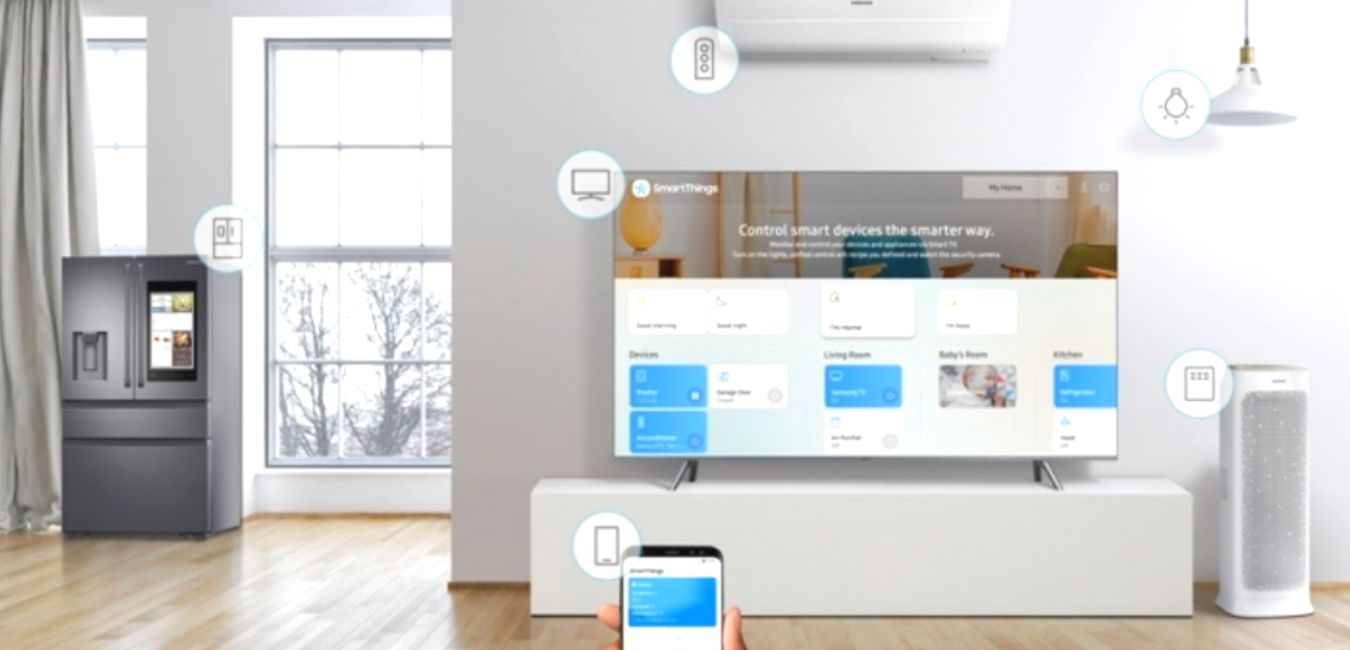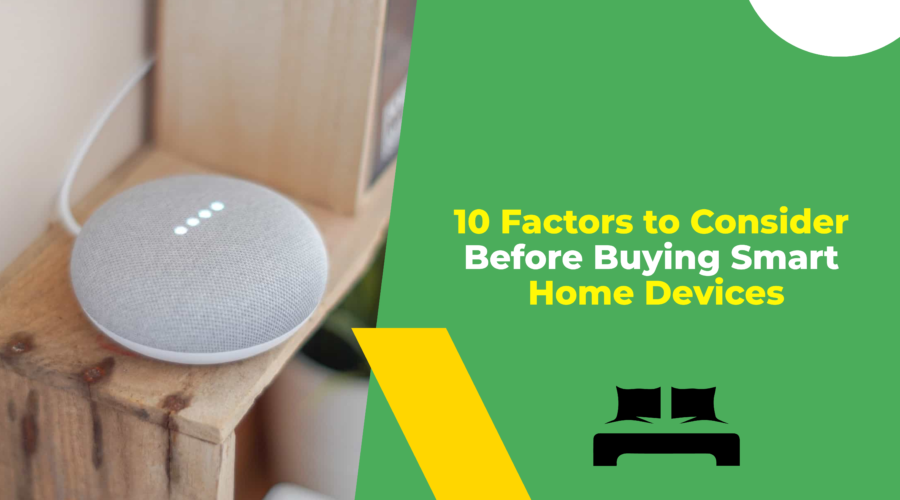The world is moving at a fast pace, and smart homes and devices are all the IT things today. Are you still skeptical about getting smart home devices? But know that smart devices are now no less than a need of the hour, so you might as well take this leap. Now, we understand that any big purchases do make one reluctant once, but you can’t go wrong with a thorough decision-making process, right?
Plus, not all smart devices cost hefty amounts. From thermostats and security cameras to light bulbs and appliances, there are many different types of smart home devices available on the market, hence landing on ranging price brackets too. However, that is something we will be discussing later on in this post.
So, without any further wait, let’s dive in and find out the 10 factors you need to consider before buying any smart home devices.
1. Security & Privacy Features
As smart home devices collect and transmit data, security, and privacy are vital. Make sure that the device uses end-to-end encryption and has a password-protected admin account to ensure your data is protected and also check if it has any known vulnerabilities.
Also, make sure that these smart devices connect to reliable internet connectivity at all times. For this, CenturyLink can be an ideal choice for your home internet. Since CenturyLink WiFi can connect to hundred devices at once, and comes with an in-built McAfee Anti-Virus suite ensuring a protected home network. This way, you do not have to worry about any device in your home ever losing its online status or security.
2. Compatibility with Existing Devices
One of the most important things to consider when buying smart home devices is whether they will work with the devices and systems you already have. This includes things like your router, smartphone, and other smart home devices. If you have a lot of Apple products, for example, it may make sense to choose more Apple products and create a coherent ecosystem.

3. Integration with Voice Assistants
Many smart home devices can be controlled using voice commands through a virtual assistant like Alexa or Google Assistant. If you plan on using voice commands to control your devices, make sure the devices you choose are compatible with the virtual assistant you prefer to use.
4. Ease of Set Up
Smart home devices should be easy to use and set up. Look for devices that have a user-friendly interface and clear instructions for installation and setup.
5. Sustainable & Energy-Efficient
Some smart home devices can help you save energy and reduce your carbon footprint. Consider investing in energy-efficient devices, such as smart thermostats, that can help you reduce your energy consumption.
6. Range of Features
Different smart home devices offer different features and capabilities. Consider what features are important to you and what you want to be able to control with your smart home devices. For example, if you’re looking for a security camera, you’ll want one that has night vision and motion detection capabilities.
7. User Ratings & Reviews
Before buying a smart home device, be sure to read reviews and check ratings from other users. This can give you a good idea of how well the device works in real-world situations and whether or not it is worth the investment.

8. Accumulated Cost
Smart home devices come in a diverse price range. Be sure to consider the overall cost of the device, including any additional costs like subscriptions or recurring fees. Also, make sure that you are investing in a good quality product and conduct a thorough price comparison as well.
Do take your time. Impulsive decisions often make us regret later on…
9. Brand Reputation & Reliability
Look for devices from reputable and reliable brands that have a proven track record of producing high-quality smart home products. This can help ensure that you are getting a product that is well-built and will last for years to come.
10. Warranty & Available Technical Assistance
Make sure the device you are planning to buy comes with a warranty period and has customer support that can help you with the setup and troubleshooting.
Concluding
Buying smart home devices can be a bit overwhelming, but by considering these 10 factors, you can be sure you’re making an informed decision. Take your time to research different devices and choose the ones that best suit your needs and budget. With the right smart home devices, you can enjoy greater convenience, control, and security in your home.




